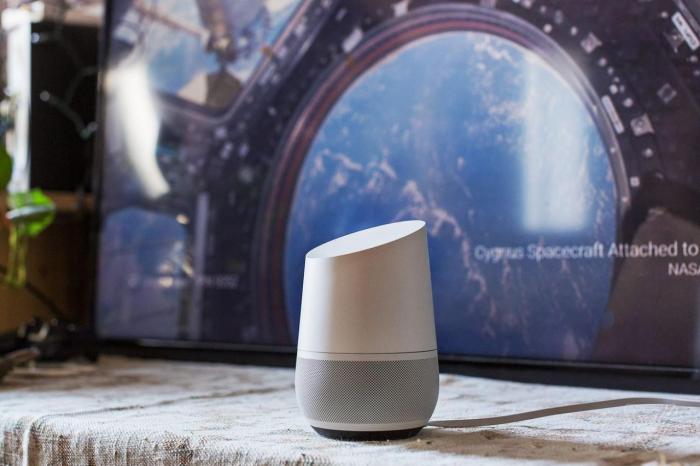As convenient as brilliant speakers can be, the reality they’re continually listening can make them somewhat unpleasant — recall how savvy speaker creators were discovered utilizing people to tune in tao voice accounts? Presently, specialists have shown a potential new security hazard: it’s conceivable to issue directions to keen speakers with lasers rather than verbally expressed words, as Wired reports.
The scientists found that by changing a laser’s force to a particular recurrence and pointing the laser straightforwardly at a shrewd speaker’s mouthpiece, they could cause the amplifier to decipher the laser as though it were sound, giving them a chance to give an order to the voice associate controlling the gadget. What’s more, it appears as though for all intents and purposes each voice partner might be helpless against this vector of assault, as the scientists state they have tried this on Google Home gadgets, Amazon Alexa gadgets, and Facebook’s Portal Mini, just as some cell phones including an iPhone XR, a 6th era iPad, a Samsung Galaxy S9, and a Google Pixel 2.
They’re calling the thought “Light Commands.” Here’s a video outline of how they work (the specialists’ site has a decent clarification also):
Furthermore, here’s one case of a laser making a Google Home open a carport entryway. There’s additionally a video of a laser asking Google Home to tell the time and a video of a laser giving an order crosswise over structures:
This is wild stuff — yet it’s not presumably difficult for a potential aggressor to draw off.
For one, the assailant needs an observable pathway to the gadget they’re pointing a laser at — through a window, in all likelihood. You can evacuate viewable pathway by fending off your speaker from your windows or shutting your shades.
The assault likewise requires some specific gear to cause the laser to regulate its recurrence — however, the specialists provided a rundown of the parts you could utilize. A significant number of them can be purchased on Amazon, and everything a potential assailant may need costs under $500. Regardless you’ll require some specialized mastery to assemble everything, except it’s not amazingly cost-restrictive to apparatus up a laser for this particular situation.
Bolts AND ALARMS GENERALLY ALREADY HAVE PIN PROTECTION
There are likewise a few assurances incorporated with our gadgets, so make it progressively hard for them to be captured by a solitary voice demand. Cell phone colleagues like Siri, for the most part, cause you to open your telephone, or tune in for a “confided invoice” before they run your directions. Also, some shrewd gadgets won’t initiate as effectively as the carport entryway from the video — numerous locks, caution frameworks, and vehicle remote beginning frameworks require a verbally expressed PIN before they will work. In principle, an aggressor could tweak the lasers to “talk” the PIN, however, they’d have to listen in on you first. They could be likewise animal power PIN endeavours, however, that implies much additional time before they can seize your gadget.
The scientists recommend that shrewd speaker sellers could more readily anticipate this sort of assault by requiring voice directions to be gotten notification from two mouthpieces or by having a light shield before the receiver. It’s not clear if the sellers will roll out any prompt improvements to address this helplessness, however: Google and Amazon revealed to Wired that they are inspecting the exploration paper, Apple declined to remark, and Facebook didn’t react before Wired distributed their article.
Given what’s required to draw off this assault, it doesn’t appear to be likely that you’ll all of a sudden need to stress over individuals directing lasers into your home toward open your carport entryway. In any case, it’s hypothetically conceivable, and the examination exhibits one more way bringing a web associated mouthpiece into your home can be a potential hazard to your security.

